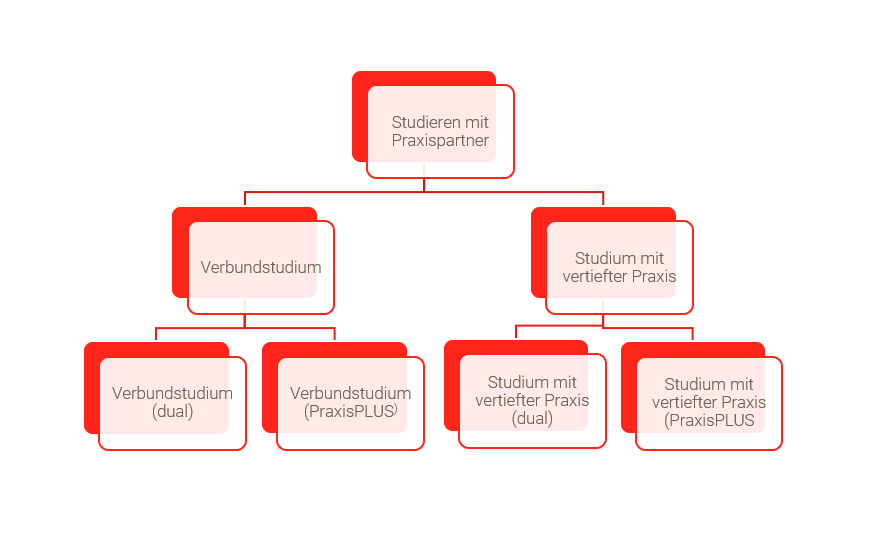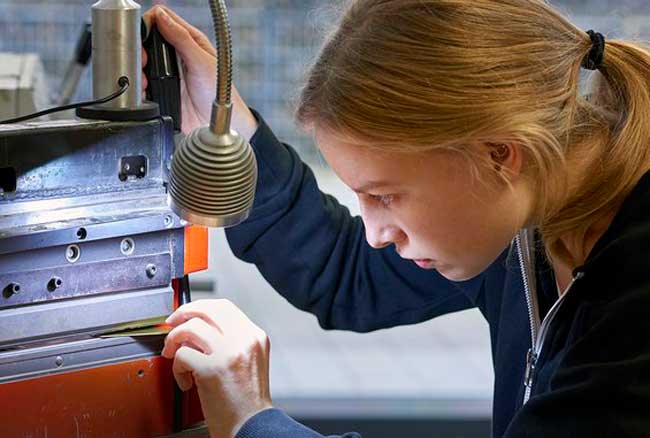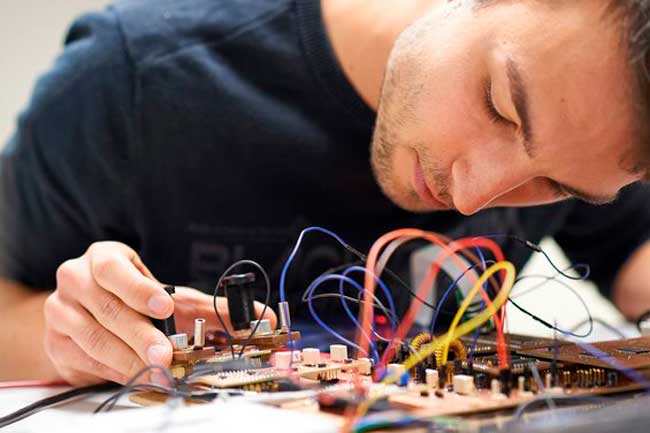Dual students win
Studying with a practice partner
The concept is attractive and offers numerous advantages and prospects.
Students on a degree course with an intensive practical focus gain at least 50% more practical experience.
Applying the knowledge they have already acquired during their studies in practice, completing assigned tasks, taking responsibility and possibly taking on a project of their own is an incentive.
Combined studies or studies with in-depth practical experience – the differences
Whether as a combined study program or as a study program with in-depth practical experience, both options are extremely interesting.
You should consider which of these two options is right for your company.
A combined degree course combines a degree course with vocational training and starts with a first year spent exclusively with the employer and attending vocational school before the degree course.
It therefore lasts 1 year longer than the regular Bachelor's degree course.
Depending on the course, two apprenticeships are acquired in 4 ½ or 5 years.
A recognized qualification from the Chamber of Industry and Commerce or the Chamber of Crafts and an academic degree.
(An exception to this is the Insurance Management course, which fully integrates the training and takes 3 ½ years to complete).
The course of study begins after the first year of training with the employer and takes priority from this point on.
Studies and practical work alternate.
Study during the semester, work during the semester break.
As far as possible, theory is put into practice during the semester break in line with the content of the course.
The practical semester is also completed at the employer.
The final thesis should be written in cooperation with the employer and can take up an academic topic of the employer.
When drafting the contract, the vocational training contract must be supplemented by an education contract.
This must also be submitted to the chamber.
An education contract regulates the entire duration of the course.
The application for a study place should be made before the start of training in order to secure a place.
In design courses, an aptitude test must be passed before starting vocational training.
Vocational training is not integrated into the degree course with in-depth practical experience.
However, students gain up to 50% more practical experience without extending the duration of their studies.
With a little organizational skill, practical work can be easily integrated into the course of studies.
Study during the semester, work during the semester break.
As far as possible, theory is put into practice during the semester break in line with the content of the course.
The practical semester is also completed at the employer.
The final thesis should be written in cooperation with the employer and can take up an academic topic of the employer.
The application for a study place is made in the year of admission.
An aptitude test must be passed for design courses.
It is recommended to start a degree course with in-depth practical experience at the beginning of the course, but this can still be done in the first third of a Bachelor's degree course.
An education contract/work contract must be concluded between the employer and employee, the student, for the entire duration of the course.
Studying with in-depth practical experience is usually also possible on a Master's degree course.
Contact us

Gabriele Lepper
Transfer and Entrepreneurship Unit





